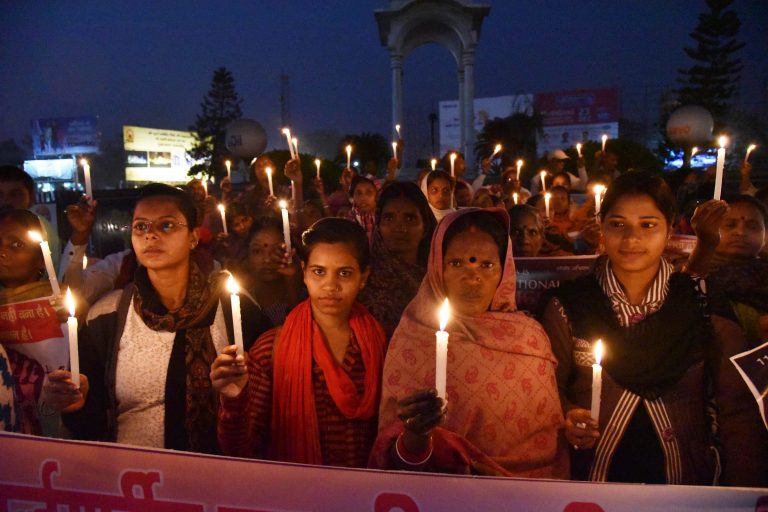
Above: A candlelight march on Human Rights Day in Patna/Photo: UNI
All people have rights while governments and institutions have responsibilities that correspond to these rights. To prevent violation of these rights, fair laws must be enacted
By Shaan Katari Libby
Human rights are at the very core of society and part of the development of the marginalised. Every human is entitled to human rights. The Human Rights Based Approach (HRBA) begins with an assessment to determine the challenge, development indicators and who are the most affected.
This was the main theme of a recent talk organised by a Chennai-based NGO, Roshni, and Soroptimist international Chennai Downtown. The speaker was Professor Siraj Sait of the University of East London and a member of a UN advisory group on gender issues. This was followed by a study of data on international human rights obligations ratified by each country.
The Bill of Rights consists of the Universal Declaration of Human Rights (UDHR) together with the International Covenant on Economic, Social and Cultural Rights (ICESCR), 1966, and the International Covenant on Civil and Political Rights (ICCPR), 1966). In accordance with the Universal Declaration, the Covenants recognise that “… the ideal of free human beings enjoying civil and political freedom and freedom from fear and want can be achieved only if conditions are created whereby everyone may enjoy his civil and political rights, as well as his economic, social and cultural rights”.
Article 1 of ICCPR says that states must commit themselves to promoting the right to self-determination and respect that right. It also recognises the rights of people to freely own, trade and dispose of their natural wealth and resources. With regard to absolute rights in land and property, ownership has been a key issue and this has made women less powerful. Women who have land or housing security are less likely to face domestic abuse.
Bringing the literature of rights into action has indeed helped, said Prof Sait. But the transition has not been easy. There are a set of people who are against land rights for women, citing it would amount to fragmentation of agricultural land, etc. And many fear women in authority. But it has also been proved that women in responsible positions tend to be less corrupt.
It was acknowledged with regret that society has always turned a blind eye to the violation of women. Misogyny is rampant. It is important to identify, specifically, who are the duty bearers and rights holders—those with obligations to act.
The solution is gender-just laws. An empowered woman empowers others. A key message delivered was that in a HRBA, the process is equally important as the outcome. All people have rights—they are rights holders. Governments, institutions and individuals have responsibilities (or duties, obligations) that correspond to these rights. People have the right to claim their own rights. The relationship between duty bearer and right holder is the most important part of a rights-based approach.
Sait said states would do well to remember the universality and inalienability of human rights. Nor can others take them away from a person. Article 1 of the UDHR says: “All human beings are born free and equal in dignity and rights.” Universality also refers to the obligation of each state to respect and protect human rights in international instruments.
But action still needs to be taken by many states on these core values.
—The author is a barrister-at-law (Honourable Society of Lincoln’s Inn, UK) and a leading advocate in Chennai


Well researched one
Upholding the duty to respect and preserve the basic human rights in and by every State is a notion that is becoming a thing of the past. Enlightening article that shines light on this issue.
Comments are closed.